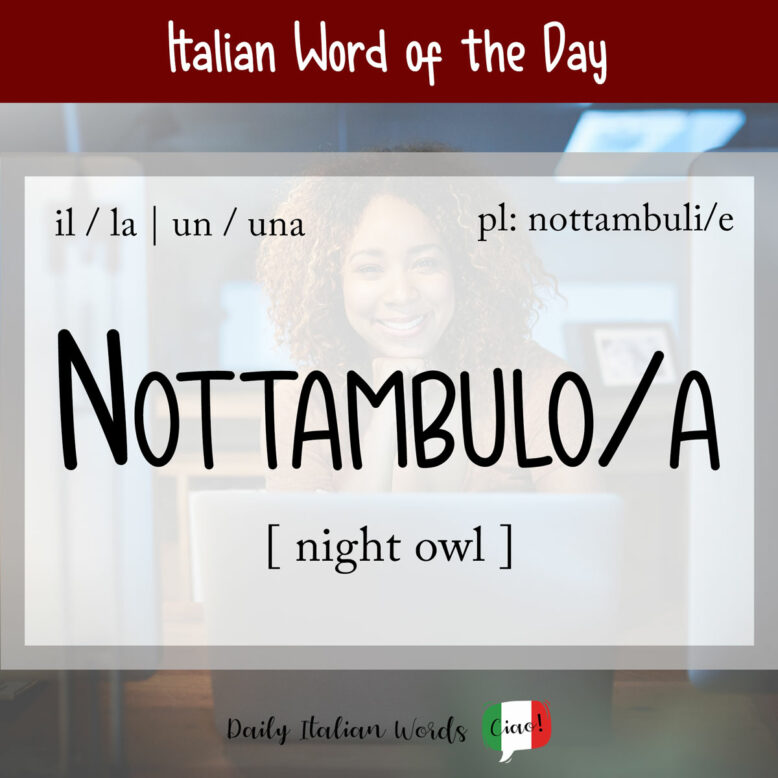If you are a person who is habitually wakeful or active at night, you might receive the nickname nottambulo which is the word for night owl in Italian. In particular, it indicates those who tend to spend the night walking or enjoying themselves in public places.

It is a combination of the Latin words nox noctis (night) and ambulare (to walk), and is modelled on the word funambulus (tightrope walker). In ancient Italian, it used to refer to a sleepwalker but today the term sonnambulo is used instead.
Ho un fratello nottambulo e una sorella sonnambula.
I have a brother who is a night owl and a sister who sleepwalks.
Nottambulo can be used as a noun to denote a person, or as an adjective to describe a person, situation or habit. In either case, the ending changes according to the gender of the person and the number of people in question:
- nottambulo = night-owl (a man)
- nottambula = night-owl (a woman)
- nottambuli = night-owls (a group of men / men and women)
- nottambule = night-owls (a group of women)

- un amico nottambulo = a friend who is a night-owl
- una vita (da) nottambulo = a life lived at night
- abitudini nottambule = night-time habits
Da giovane ero un gran nottambulo ma adesso che sono invecchiato, vado a dormire presto.
When I was young I was a real night owl but now that I’m older, I go to bed early.
The opposite of nottambulo is mattiniero which is the word for an early bird, whereas synonyms include the informal tiratardi (literally ‘pulling late’) and the literary nottivago (literally ‘night wandering’).
Heather Broster is a graduate with honours in linguistics from the University of Western Ontario. She is an aspiring polyglot, proficient in English and Italian, as well as Japanese, Welsh, and French to varying degrees of fluency. Originally from Toronto, Heather has resided in various countries, notably Italy for a period of six years. Her primary focus lies in the fields of language acquisition, education, and bilingual instruction.


